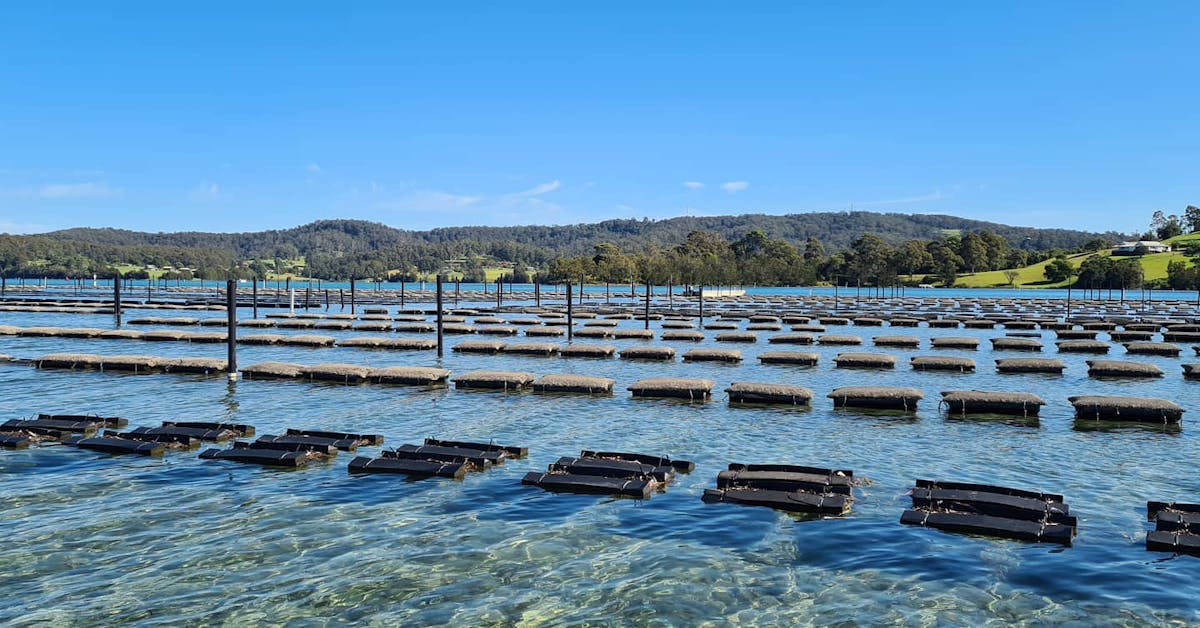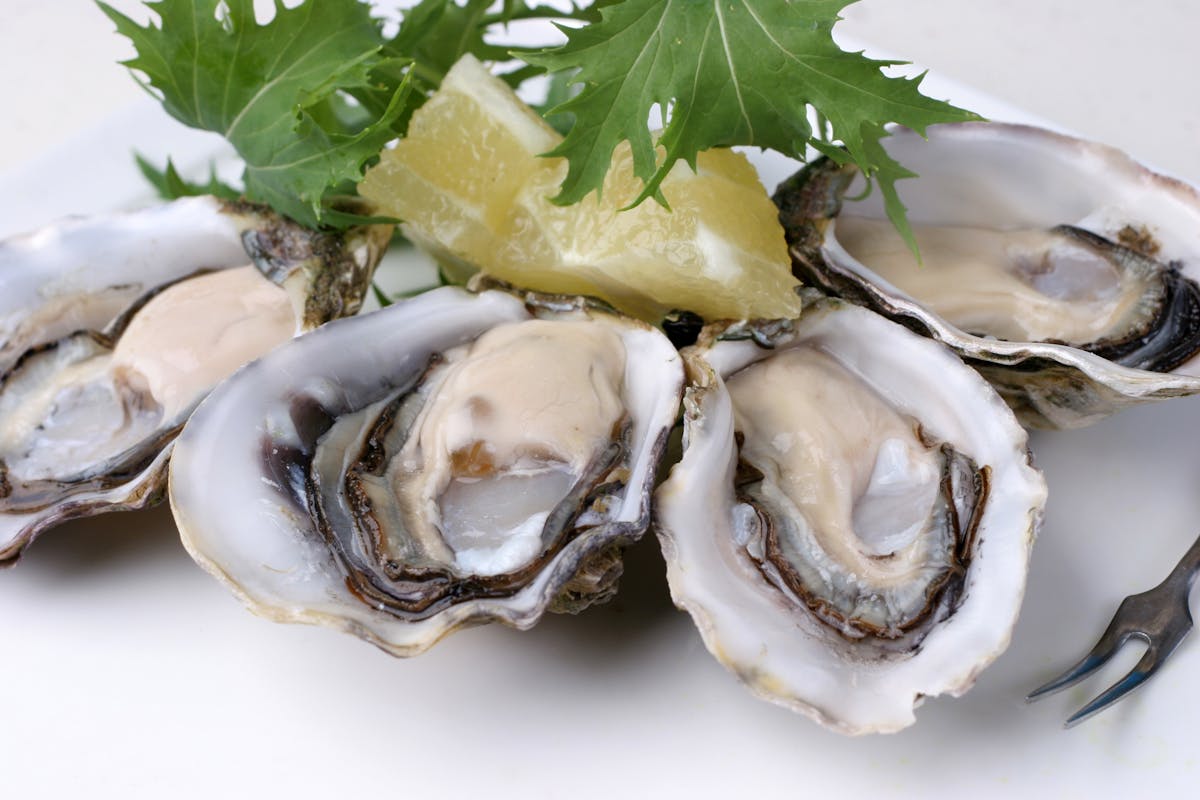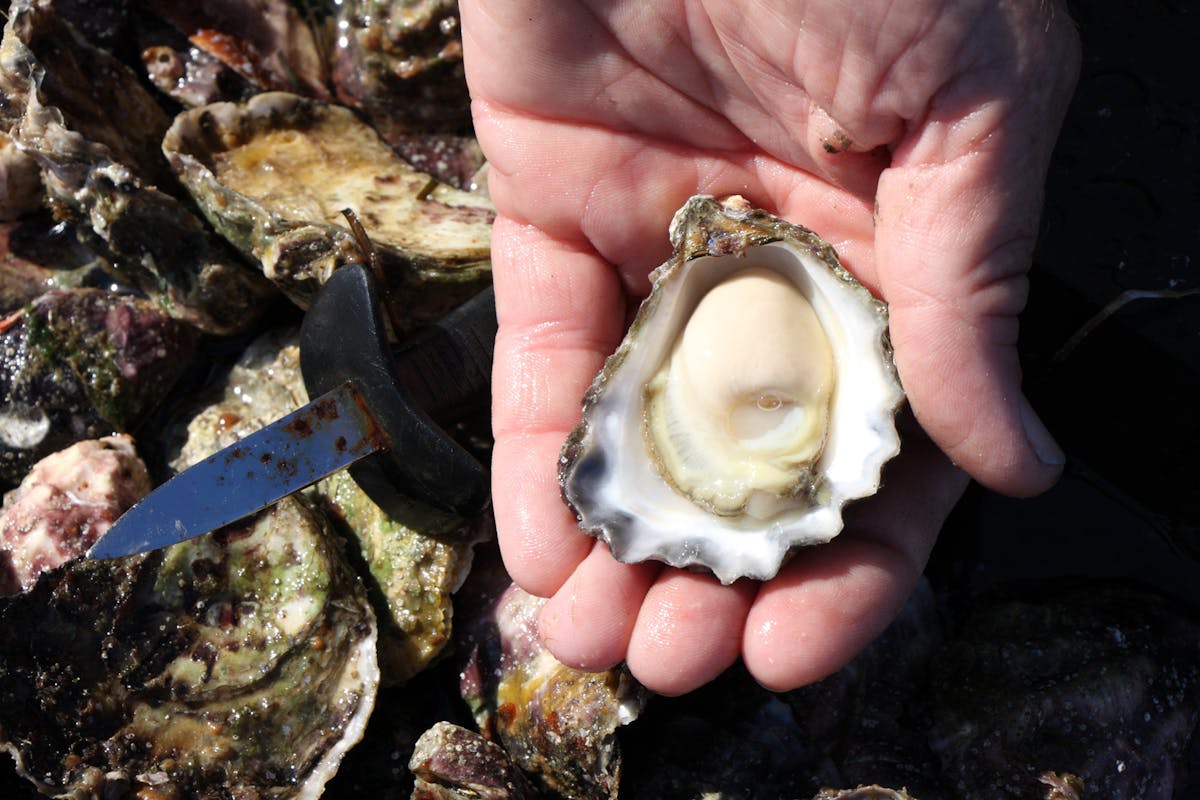Weber’s complete guide to Oysters
Oysters will always separate a group of people; love them, can only eat them cooked with bacon and barbecue sauce, or can’t stand them at all? Well, we love oysters, and upon returning from a recent trip to Narooma New South Wales, we learnt lots about them. So, no matter where you are on your oyster journey, there is so much to discover!
The eating experience of an Oyster is unique.
It varies across species, growing region and method, water quality and age; even seasonality influences the outcome of that delicious morsel. Just like a fine wine is dictated by its terroir, we should be able to distinguish the unique characteristics of an oyster by its natural variations.

Montague Oysters, Narooma, NSW
Our tour with Dan and Sarah from Montague Oysters in Narooma, NSW. Their passion for oyster farming and water quality, and sheer hard work shone through in the eating quality of their pristine oysters.
In Australia and New Zealand there are three main species of oyster; the Pacific Oyster, the Sydney Rock Oyster and Angasi (Native Flat Oyster). The Sydney Rock Oyster and Angasi are native to Australia, whereas the Pacific Oyster was introduced to Australia and New Zealand in the 1940’s from the Pacific coast of Asia.
Shockingly only 10% of oysters consumed in Australia are eaten fresh, that is a living oyster, freshly shucked and enjoyed immediately.
Without a doubt buying shucked oysters is convenient, but you lose that element of freshness; as with any food product it begins to deteriorate in quality. Therefore, shucked oysters must be kept in the fridge and consumed within 24 hours.
So, if you are someone that is squeamish at the thought of an oyster, whether it be the texture or taste, we encourage you to try a freshly shucked oyster. The freshly shucked versus a pre-shucked, dead, low quality oyster eating experience is worlds apart; even more so if it has been rinsed of its briny liquid oyster elixir. Think of it like eating a warm steak, with a juicy tender inside and a seared crust just off the barbecue, compared to leaving that steak to sit for two hours after cooking to become cold, dry and clammy.
Learn the Difference Between the Oyster Varieties

PACIFIC OYSTERS | |
|---|---|
| Taste | Firm bodied - burst of salty ocean freshness with a crisp, sweet finish. |
| Grown | South Australia, Tasmania and parts of New South Wales. These oysters are faster to grow, only taking 18 to 24 months until they are ready for sale. |
| Season | Available year around, but best from April to September |
| Storage | Unshucked - Cover with a damp cloth and keep in an airtight container in cooler temperatures between 5°C to 10°C (crisper section of the fridge can work great) for up to 7 days. |

SYDNEY ROCK OYSTERS | |
|---|---|
| Taste | Soft oyster, with a salty-sweet marine flavour, slight mineral taste, and lingering creamy finish. |
| Grown | New South Wales, south-east Queensland and Western Australia. These oysters take two to three years to grow until they are ready for sale. |
| Season | Available year around, best from September to March. |
| Storage | Sydney Rock Oysters are hardier than Pacific Oysters and can withstand warmer conditions. Unshucked - keep damp (cover with a wet towel) at temperatures between 10°C to 20°C for up to a week. |
ANGASI OYSTER (AUSTRALIAN NATIVE OYSTER) | |
|---|---|
| Taste | Full bodied- rich in flavour, mildly gamey |
| Grown | Grown in small quantities across Australia’s coasts |
| Season | May to August |
| Storage | Unshucked - Cover with a damp cloth and keep in an airtight container in cooler temperatures between 5°C to 10°C (crisper section of the fridge can work great) for up to 7 days. |
Shucking Oysters
Check out our grill skill where we show you how to shuck an oyster. It’s best to buy oysters whole, alive and shuck them yourself!
Our Favourite Oyster Recipes
Fresh:
If you’re lucky enough to have incredibly fresh oysters the best way to enjoy them is in their natural state, simply with lemon or a complimentary dressing. Here is our recipe for Fresh Oysters with Charred Spring Onion and Wakame Dressing.
Catch a glimpse of our tour with Montague Oysters and watch our recipe for Fresh Oysters with Charred Spring Onion and Wakame
Roast:


